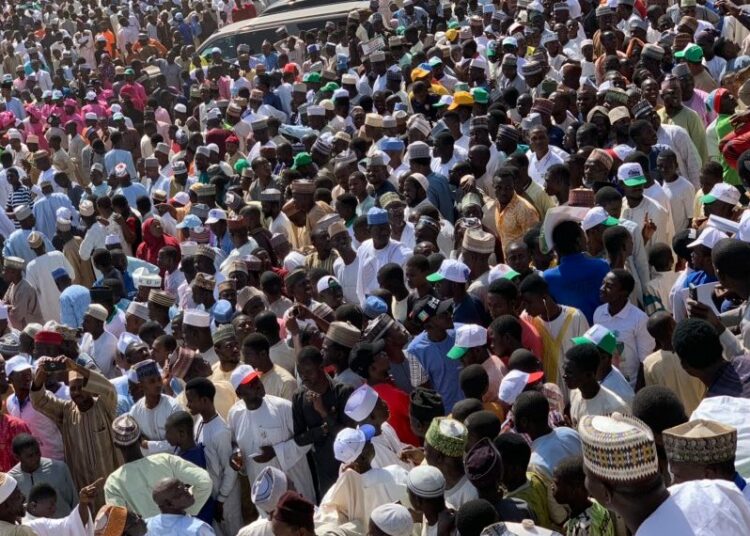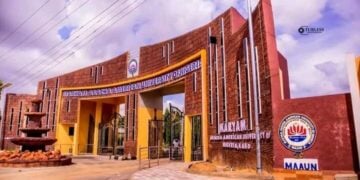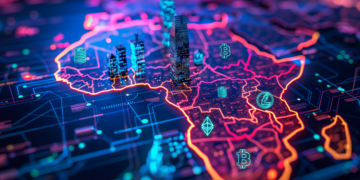“The deepest sin against the human mind is to believe things without evidence” – Aldous Huxley
Political campaigns kicked off a few days ago to sell political parties’ manifestoes and their candidates to the Nigerian people. Expectedly, blaring and discordant debates will be taking place across the country with intentional lies to gain resonance with the splintered electorate while a consolidated generalised atmosphere of capacity and competence to fix Nigeria will be relegated by paid publicists and other media strategists. Divisive issues in Nigerian politics will take centre stage. Coordinated and dramatic public relations offensive to sell empty promises to the voting public will be second nature. Narratives that are premeditated to obscure the truth and misinform, cause pain, hurt people and push communities and citizens to incite one another to destroy and maim will reverberate the airwaves and social media space.
Massive propaganda campaigns, fake news and hate speech make objective facts less important in shaping public opinion and discourse. They are purveyors of divisive narratives that promote hate and anger. Furthermore, orchestrated propaganda campaign by the government of the day will be drummed-up enthusiastically to win votes for continuity.
The repetition of talking points that do not describe an accurate representation of the people but the creation of a false national identity that has been part of the Nigerian social, economic and political life since 1999 will play out. The shaping of our reality through repetitive gushy words and mantras like “Change” and “Next Level” will be suspect and a hard sell in this new awakening of the Office of the Citizen. Indeed, mass marketing and political communication techniques in the commercial marketplace will fail woefully in this election season if they are not driven by existential data and evidence-based national issues.
Nevertheless, these ritualised incantations and innuendoes should be discouraged in line with the Peace Accord signed by the main presidential candidates in Abuja. The campaign councils, managers and spokespersons should note that public opinion that is not shaped by fact-based urgings will not deliver their candidates. Fake news and hate speech are becoming the markers of our time, shaping negative electoral outcomes. Probingly, election-time propaganda methods cannot be transferred to the realm of mass marketing appeal and logic. Political publicity campaigns have come to be made up of not so much communicating facts about issues or political candidates as they are about a constant repetition of party logos and taglines. Nevertheless, campaigns will only succeed with authentic speech and taglines.
The public sphere is well energised to mobilise public support for the 2023 general elections, and it will certainly not be business as usual. Pointedly, mass marketing, talking points, taglines, catchphrases and propaganda campaigns are no longer fashionable in emerging democracies. The civic technology space will unpack new tools and mechanisms to salvage our country from oppressive leadership to achieve better outcomes.
Nigerians must think about the Office of the Citizen (what it means to be a good citizen) and raise more awareness about what it means to be challenging citizens for accountability. We must activate our constitutional rights to prevent false political dichotomies that the campaigns will throw up in the days ahead. As citizens, we must free ourselves from the tentacles of the political aristocracy (owners of Nigeria) and regional tyrannies. The conversation, beyond ritualised incantations, innuendoes and sloganeering, is about how we can we build our nation. On the other hand, the role of the media in the modern public square as it relates to accountability, agenda setting and strategic gatekeeping of institutions and good governance as overlapping drivers for the enthronement of authentic leadership in 2023.
In setting the agenda for the 2023 general elections, the media must take cognizance of the mood of the nation through the conscious realisation of issues of concern to Nigerians, socio-political mobilisation for joint action, conversation and contestation of national priorities. Good journalism must deliver the public good through social responsibility and self-censorship.
The unprincipled and vicious system of recycled leaders, patrimonial, predatory elite class conspiracy and crude nationalism should be interrogated. Avoiding ethnic, religious and historical symbols of hate to push for greater support for unpopular candidates is a critical pathway to a new Nigeria. Citizens’ consensus framework and mindset shift must interrogate past actions and current political officeholders’ aspirations beyond ethnic, religious and political party lines and declarations of intent.
Without a doubt, the campaigns/conversations must begin with the forensic audit of sources of wealth and campaign funding. What do the presidential candidates have to offer? What do their national development strategy and manifestoes look like? What do they include? Are they evidence-based? What are the indicators of project deliverables, activities, milestones and means of verification each year outside bureaucratic channels? What are the interconnections between state revenue and expenditure framework? What are their credentials for global political engineering and international diplomacy? How?
The debate on the nexus between patriarchy, identity, culture, tradition, religion and the cross-cutting issues of feminism, gender essentialism and nation-building will resonate with women as existential campaign issues. Gender mainstreaming in the national conversation is about more women assuming positions of influence and power. Critical stakeholders and presidential candidates must create an inclusive space and initiate programmes to dismantle the embedded hierarchies in political institutions, state structures and the objectionable systems that continue to undervalue, dishonour and emasculate women in nation-building efforts. It should no longer be about the sad impulses of sexual objectification, commodification and feminisation of poverty.
What is important in my view of women’s struggles is the improvement of access to national livelihood assets.
The office of the citizen should demand an urgent retooling of Nigeria’s education financing and the strengthening of partnerships with the private sector as strategic gatekeepers in upscaling infrastructure, learning and new technologies in line with global best practices and standards. This will restore hope in the sector and foster national development, economic growth and peacebuilding.
Citizens’ spotlight and questions on agenda-setting for the 2023 general elections should be based on strong leadership, stakeholder engagement knowledge, sound people and management experience, technical skills in public and digital diplomacy, bridge-building and statesmanship.
To sum up, we have an obligation as citizens to canvass and support a presidential candidate that can ensure openness, listen to businesses, mainstream gender, invest in education and skills, import ideas and talent, and learn from the other progressive jurisdictions, particularly the East Asian experience to leapfrog development and governance.
It is instructive to note that most East Asian countries had similar trajectories of natural resources endowment, ethnic disunity, frail institutions, weak democracy, subsistence agriculture and the negative legacy of commodity and colonial exploitation, yet they were able to overcome these setbacks to build a virile nation.
It is imperative for us as a people to seize the moment and the time is now!
– Orovwuje is the founder of Humanitarian Care for Displaced Persons, Lagos. He can be reached via [email protected] and on 08034745325.




